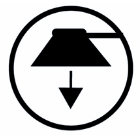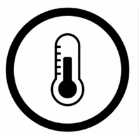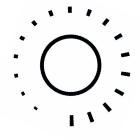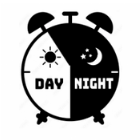Outdoor Lighting Regulations
A new outdoor lighting bylaw adopted at the 2023 Annual Town Meeting is in effect. It replaces the previous outdoor lighting bylaw that was adopted in 2005 (Chapter 102 of the Code of Nantucket).
Nantucket Lights has recently published an outdoor lighting guide available on their website.
The summary below was prepared by Chamber of Commerce member Nantucket Lights, the citizen advocacy group exclusively dedicated to combating light pollution on Nantucket and the lead proponent of the new bylaw. Click here for full text.
SUMMARY OF BYLAW ADOPTED IN 2023
(Effective Jan. 1, 2024)
Purpose (§ 102-1). The regulations are intended to:
- Minimize the unintended and/or adverse impact of the use of artificial light at night (commonly known as light pollution) to the greatest extent possible, in recognition of its negative effects on people as well as wildlife.
- Protect residents from light trespass that negatively affects the enjoyment of their own property and their property values.
- Control glare to increase the safety and security of residents and visitors.
- Minimize skyglow to preserve the ability to see the stars and Milky Way, thereby preserving humanity’s connection with the night sky, fostering awe and wonder in current and future generations of children as well as adults, and preserving the ability of the Maria Mitchell Association to conduct astronomical research.
- Provide adequate light for the safe performance of outdoor tasks at night and to keep property free from harm.
- Promote efficient and cost-effective lighting to conserve energy.
- Preserve the historic and rural character of Nantucket.
General requirements (§ 102-4): Unless falling within an exception or a general exemption (see below), all lighting must:
- be fully shielded if it’s brighter than 600 lumens;
- have a color temperature of 2700 Kelvin (K) or lower;
- not exceed specified limits on brightness; and
- be turned off between 11pm (or one hour after close of business) and 6am (or one hour before start of business).
Requirements for specific applications (§ 102-5): Special restrictions apply to string lights, landscape lighting, temporary holiday lighting, illumination of flags and signs, nonresidential sports lighting, streetlights, and lighting at municipal facilities.
Prohibitions (§ 102-6): Outdoor lighting that is found to create a public safety hazard or nuisance in the form of light trespass or glare is prohibited. The following types of lighting are also prohibited unless they fall within a general exemption (see below): uplighting of building facades and walls (except when part of temporary holiday lighting); searchlights and sky beams unless required by public safety personnel; fading, flashing, blinking, or rotating lighting (except when part of temporary holiday lighting); and lighting on public property subject to a conservation restriction under state law.
Exemptions (§ 102-7): Certain kinds of lighting are exempt from the regulations, including lighting needed in emergencies; temporary lighting required to save life, limb, or property (which would include safety and security lights controlled by motion sensor); lighting needed to do infrastructure repairs; lighting mandated by the state or federal government; temporary lighting sanctioned by the Select Board in connection with a Town-sponsored event or a special events permit; firepits and outdoor fireplaces; and underwater lighting.
Applicability to lighting installed before the new regulations become effective (§ 102-2): Existing lighting can be used for 5 years (with a possible extension to 10 years in some circumstances), unless deemed a public safety hazard/nuisance or there is a substantial property renovation.
Administrative Waivers (§ 102-8): If compliance with the new regulations would constitute an unreasonable hardship or be materially detrimental to health, safety or welfare, the property owner can seek an administrative waiver to some or all of the requirements.
Enforcement (§ 102-9): Enforcement will be overseen by a Lighting Enforcement Officer appointed by the Town Manager (a position created in 2005). The penalty for violations is $100 for the 1st violation, $200 for the 2nd violation, and $300 or the 3rd and subsequent violations. If a fixture violates more than one provision of this chapter, that will be treated as one violation for the purposes of assessing penalties. However, if multiple fixtures violate one or more provisions of this chapter, a penalty may be imposed for each nonconforming fixture. Every day a violation continues shall be deemed a separate offense.
Outdoor Lighting Fundamentals
SHIELDED

Fully shielded means that all light shines below the horizontal plane where the light is emitted.
COLOR TEMPERATURE

Color temperature of light, measured in units called Kelvin (K) and now generally part of the specifications for bulbs and fixtures, indicates how much harmful blue light is emitted. The higher the Kelvin, the more harmful the light is.
BRIGHTNESS

Brightness of light is measured in lumens and now generally part of the specifications for bulbs and fixtures. The higher the lumens, the more harmful the light.
Wattage, the amount of energy a blub or fixture uses, is no longer a good indicator of brightness now that there are more energy efficient alternatives to incandescent bulbs. A 9-watt LED could be as bright as a 60-watt incandescent.
DURATION

Between 11pm and 6am, outdoor lights should be used as little as possible to avoid disrupting the circadian rhythms of people, animals, insects, and plants.
Why is artificial light at night harmful?
Artificial Light at Night: State of the Science 2023 is a comprehensive, easy-to-read summary of the scientific studies that have been done about the harm from artificial light at night, published by DarkSky International (formerly known as the International Dark Sky Association).
For more information about the bylaw or light pollution, visit https://nantucketlights.
